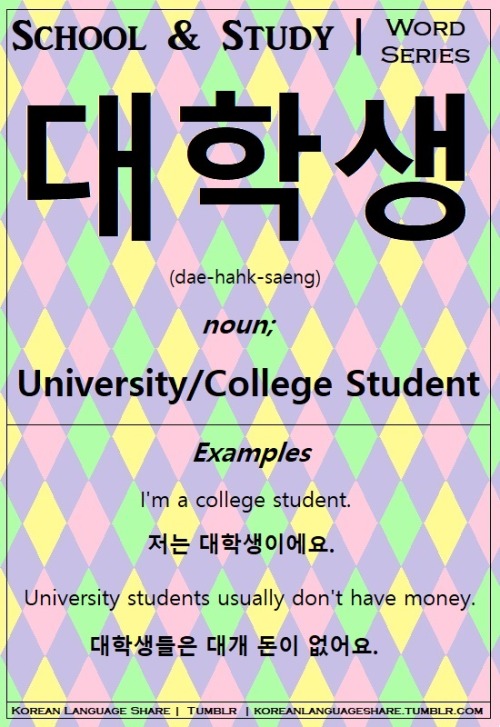#hangul

(으)러
(으)러 is the shortened form of (으)려고 하다, which is used to indicate that someone is doing something for the purpose of creating the opportunity for the following action to occur. For example:
I finished my homework quickly so that I could go outside.
밖에 일찍 나가려고 숙제를 빨리 했어요.
I am studying diligently so that I can pass the TOPIK exam.
TOPIK 시험을 합격하려고 열심히 공부하고 있어요.
The shortened form, (으)러, has limited usage. It can only be used to say that someone is going or coming somewhere in order to do something. Typically, this form is used with 가다 or 오다, however, as seen in the above example from Squid Game, it can be used alongside other verbs as long as there is some kind of movement taking place.
I am going to school to study.
공부하러 학교에 가고 있어.
I decided to go to the police to report fraud.
사기를 신고하러 겅찰서에 가기로 했어요.
I want to go and see a movie.
저는 영화를 보러 나가고 싶어요.
Although you can’t substitute (으)러 for (으)려고 하다 in situations where no movement is involved, you can substitute (으)려고 하다 in for (으)러 at any time. For example, the sentence in this scene could be written as ‘경찰들이 여기 실종된 사람들 찾으려고 금방 여길 찾아올걸, 아마?’ and it would still be grammatically correct. Technically, this means that you could go your whole life speaking Korean and never have to use this shorter form, however, it’s still useful to learn so that you can understand others when they use this form.

동의 agree/consent
투표 vote
뜻 wish/opinion
여부 whether or not
에 앞서(서) ahead of
적립되다 to be raised/saved
공개하다 to make public/release to people
숫자 number
N + 당 per N
걸리다 to hang/be at stake
액수 amount
따라서 therefore
돼지 저금통 piggy bank
포기하다 to give up
유가족 bereaved family
각각 each
씩 each
전달되다 to be delivered
빈손 empty hand
총 total

시키다
The verb 시키다 can be used to mean ‘order’ in the sense of ordering food or ordering something online, however it also has the double meaning of ordering someone to do something when it’s used as a grammatical form. When used as a grammar form, 시키다 is added onto the verb or adjective stem to indicate that someone is being forced to do that action.
Some common usages of 시키다 include:
❥이해시키다 - to make (someone) understand
❥연슴시키다 - to make (someone) practise
❥실망시키다 - to make (someone) disappointed / to disappoint someone
❥상기시키다 - to make (someone) recall / to remind someone
The teacher made the students study during the afterschool class.
선생님은 삭생들을 방과후 수업 시간 동안 공부시켰어요.
The fact that I am unemployed disappointed my mother.
제가 실업자라는 것이 저의 어머니를 실망시켰어요.
I worked hard so I satisfied my boss.
저는 열심히 일해서 부장님을 만족시켰어요.

Plain Form vs 시키다
Sometimes, due to translation errors, the meaning given to the plain form of a verb may make it seem as if 시키다 isn’t needed. For example, 감동하다 is often translated to ‘to impress someone’. You may then think that you can just use the standard 하다 form because the meaning already implies that you are making someone impressed. This is not the case, however, and there is no word which would negate 시키다 and make it useless. But then, how are they different?
Naver translates 감동하다 to ‘to be impressed’. In this instance, the action is happening to the speaker, changing the meaning from the above translation. Therefore, to say that you are making someone impressed, you can use 감동시키다 to essentially flip the verb and make it so that you are the one impressing someone else. Here are some examples:
I listened to my mother’s words and was very impressed.
저는 엄마의 말을 듣고 아주 감동했어요.
I made my mother impressed because I worked hard all day.
저는 하루 종일 열심히 일해서 엄마를 감동시켰어요.

Form Variations
Some other common variations of this form include:
❥ Verb root + 를/을 시키다
❥ Verb root + 하게 시키다
❥ Verb + (으)라고 시키다
In the examples from the scene, the speaker uses the first variation. This has no different meaning to the original form of 시키다, but is just another way to say the same thing.















